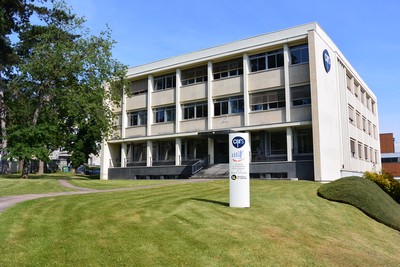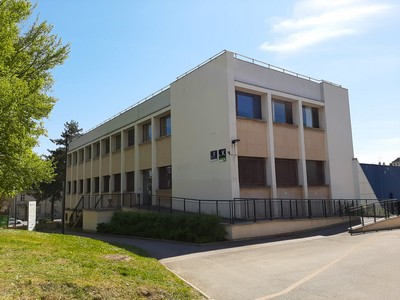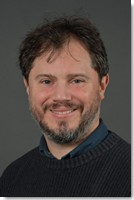 Presentation
Presentation 



The ATILF (Analyse et Traitement Informatique de la Langue Française) is a research unit in language sciences. This joint research unit (UMR 7118) has two supervisory bodies: the Centre National de la Recherche Scientifique (CNRS) and the Université de Lorraine (UL).

The CNRS building | Linguistics site
► On the CNRS side, the ATILF is attached to the CNRS Humanities & Social Sciences Institute. At the regional level, it depends on the CNRS Centre-Est delegation.
► On the Université de Lorraine side, ATILF is attached to the research cluster Knowledge, Language, Communication, Societies (CLCS) and to the doctoral school Societies, Languages, Time, Knowledge (SLTC, ED 78).

Building F | Language Teaching/Learning and Sociolinguistics site
The ATILF relies on its strong dual expertise in linguistics and IT, which enables it to provide the public with numerous online platforms and tools, including several dictionaries and other reference resources and tools in our fields.
The ATILF is runs the Équipex (Equipment of Excellence, future investment programme, PIA) Open Resources and TOols for LANGuage (Ortolang), the successor to the Centre National de Ressources Textuelles et Lexicales (CNRTL) platform, with 3,539 registered users, 725 resources and 18.4 TB of data*.
The ATILF hosts the lexical portal, with 700,000 connections per day.
The laboratory has 135 members, 6 research areas and 4 research support services, including the Michel Dinet documentation centre specialising in linguistics and language teaching and learning.
The ATILF’s activities are structured around 3 disciplinary axes (Lexis | From syntax to discourse | Language teaching/learning and sociolinguistics) and 3 transversal methodological axes (Modelling, resources and computer processing | Field approaches | Diachrony).
► Read the article by Jean-Marie Pierrel (director of the ATILF from 2001 to 2012) entitled « Du trésor de la langue française à l’ATILF et au CNRTL, 50 ans au service de l’étude et de la connaissance de la langue française« , published in 2009 for La revue pour l’histoire du CNRS on the occasion of the 70th anniversary of the CNRS, referenced at Open Editions Journal.
* September 2024 figures
Management
Scientific project
The ATILF’s scientific project for the 2024-2028 five-year contract focuses on three main areas:
(1) consolidating the unit’s scientific base in language sciences;
(2) producing and exploiting new-generation resources;
(3) transitioning the unit towards a socially responsible scientific approach.
The ATILF’s first objective is to consolidate its scientific base in the unit’s traditional areas of research in language sciences. In particular, it promotes linguistic work on the lexicon (lexicology and lexicography, both synchronicially and diachronically, etymology, morphology) and, beyond that, from syntax to discourse with multidisciplinary insights (computer science, cognition, psycholinguistics, prosody, history of ideas, sociolinguistics, translation, literature, etc.). Traditionally, the work focuses on French, but the unit also encourages work on other languages (Romance languages, English, German, Russian, etc.), particularly for contrastive purposes. Language teaching and learning also plays an important role in the unit, with work on the use of multimodal corpora, autonomous learning and all aspects of ‘informal’ language learning via virtual reality, video games, theatre, television series, etc., and the impact of new technologies on language teaching.
The second objective is to develop innovative methodologies for producing and exploiting new-generation resources using linguistic modelling, statistical methods or automatic language processing models. The construction of resources (corpora, textual databases, lexical resources) is the unit’s main unifying project, which we are implementing with the development of various cross-disciplinary programmes around the computerised French language dictionary (TLFi) and its ecosystem of resources, corpora and the digital heritage of various collections. The unit draws on its extensive experience in corpus development, such as Frantext, computerised lexicography and the maintenance and development of the Ortolang infrastructure, to make language resources available to the scientific community.
The third objective is to be a good corporate citizen. This objective covers a range of fairly heterogeneous points, but they are all linked to the implementation of scientific activity that is important to society. First of all, ATILF is tackling two societal challenges: (i) education, through its work in language teaching/learning with different types of learners; (ii) health, through the development of work related to mental health, speech therapy, strokes and cancer. A major part of the laboratory’s activities is aimed at disseminating linguistic knowledge via its open-access resources, whether for the general public (e.g. the TLFi, the CNRTL lexical portal, the FLEURON platform, etc.) or for scientific communities (e.g. the Dictionnaire du Moyen Français, Frantext, Ortolang). Finally, the unit sets up think tanks to encourage civic-minded behaviour in the laboratory’s daily life, whether in terms of professional ethical practices rooted in the open sciences or in everyday actions, particularly concerning ecological transition and the fight against discriminatory behaviour.
© ATILF | Traduit par Alex Boulton | Photos : LG, Service communication ATILF & Christelle Poirel, Direction de la communication UL.
